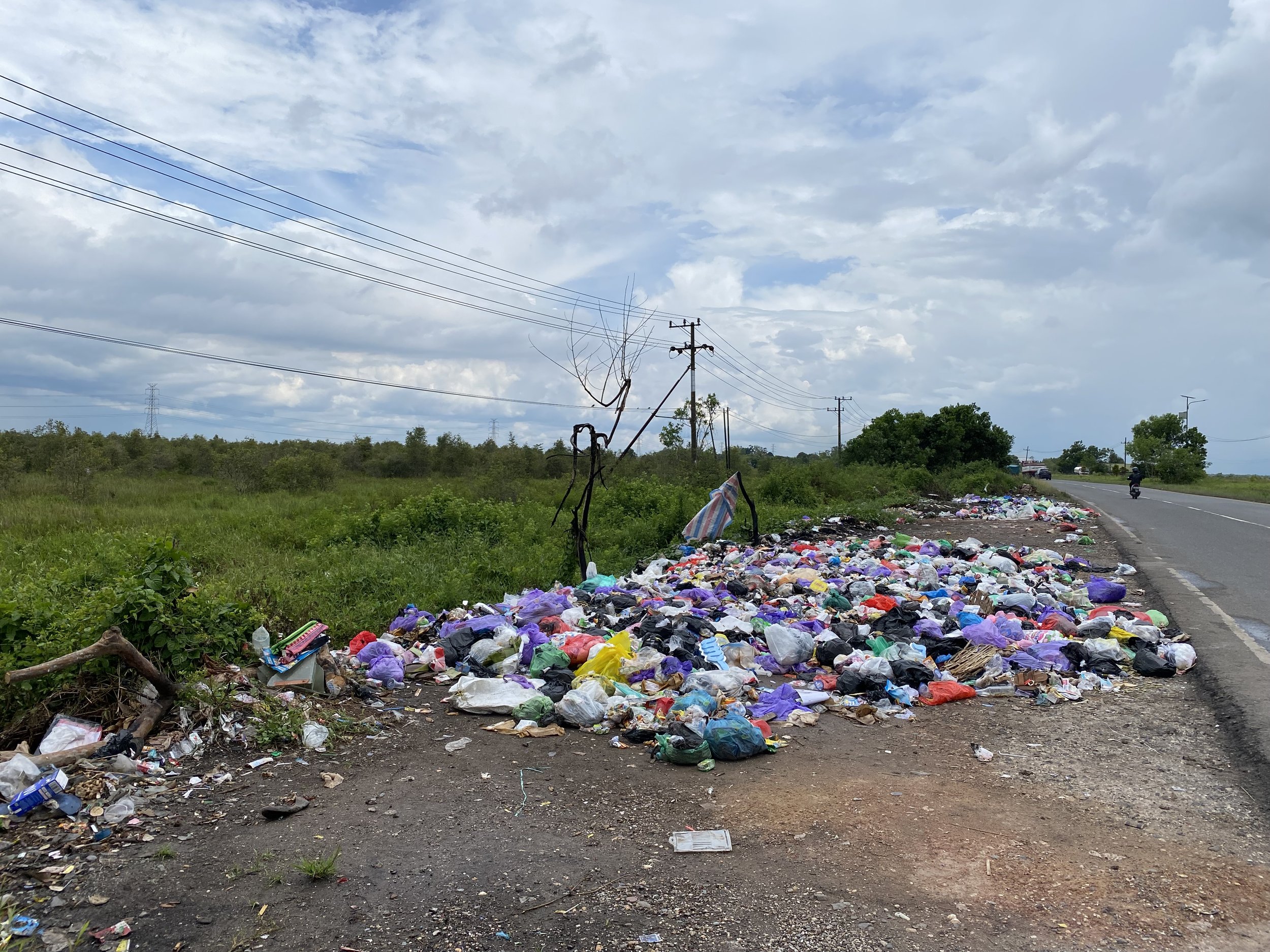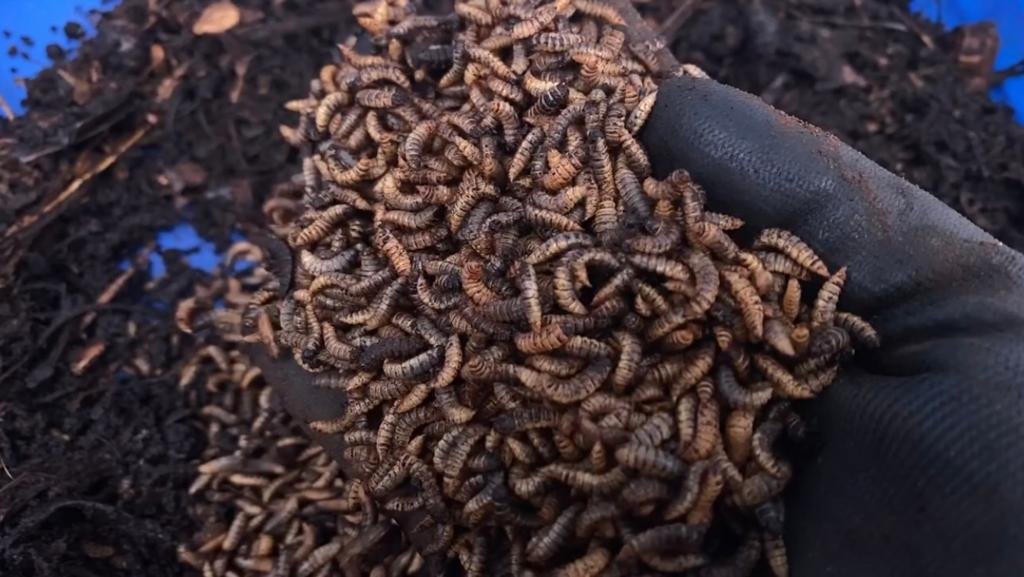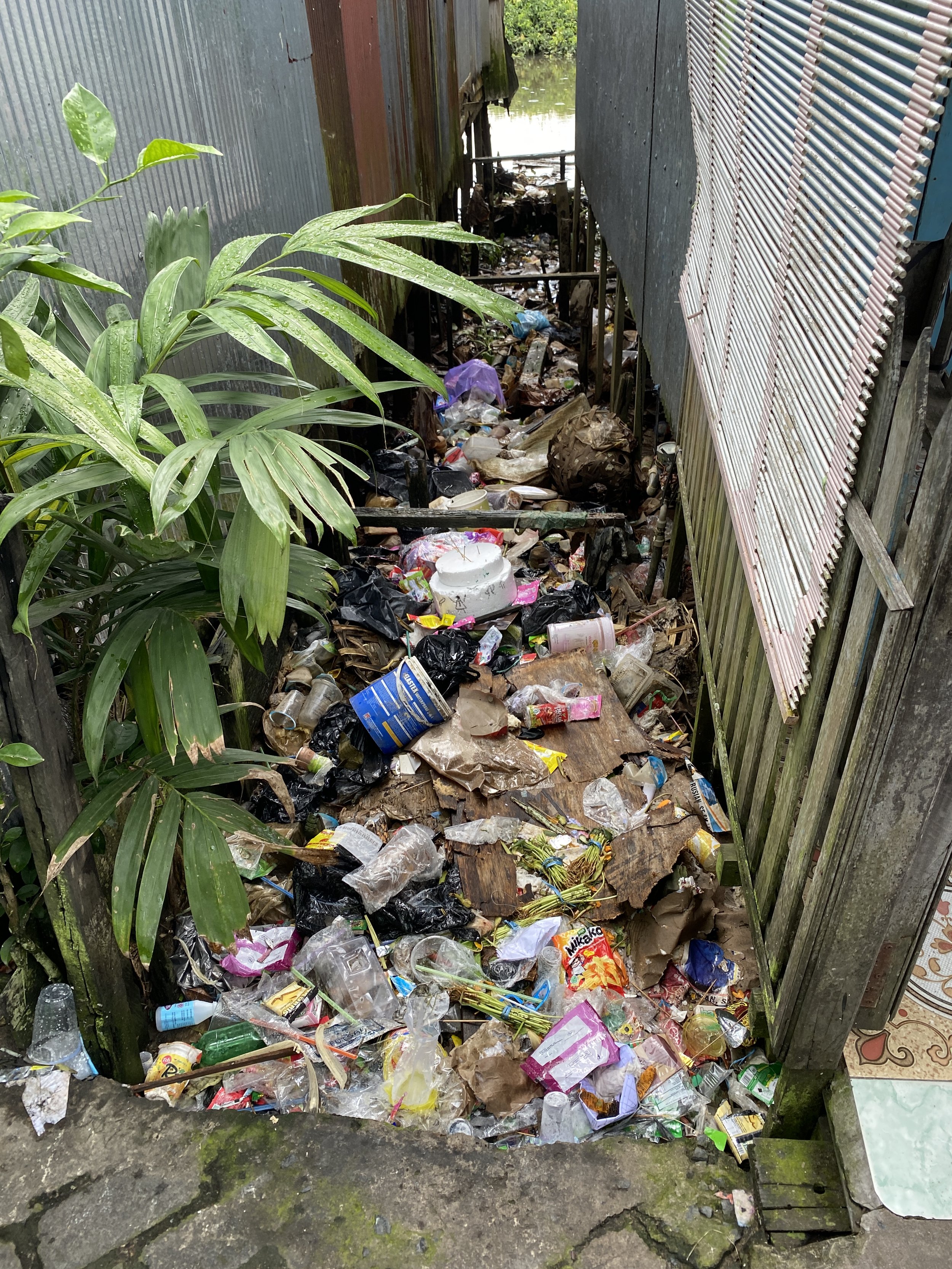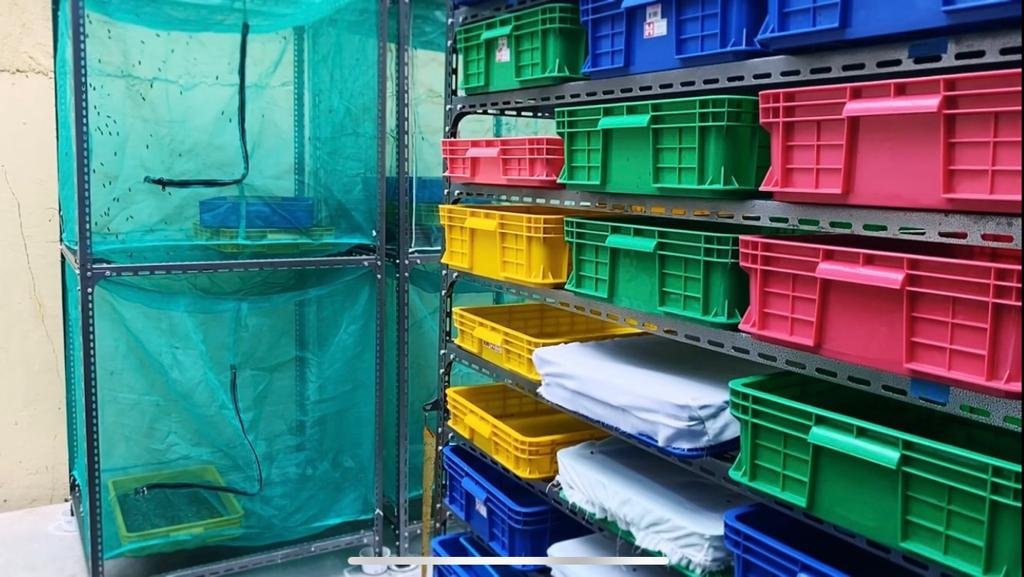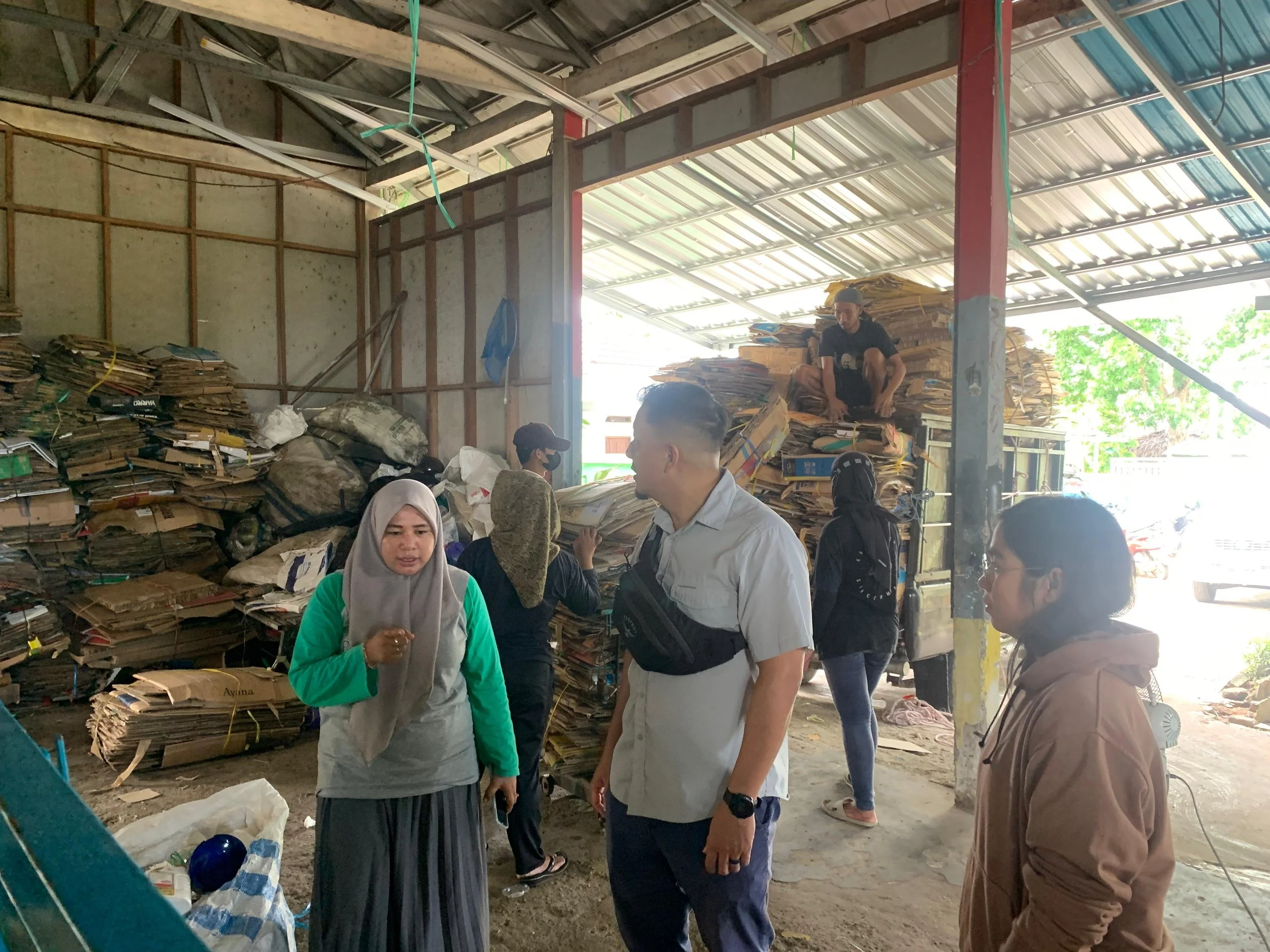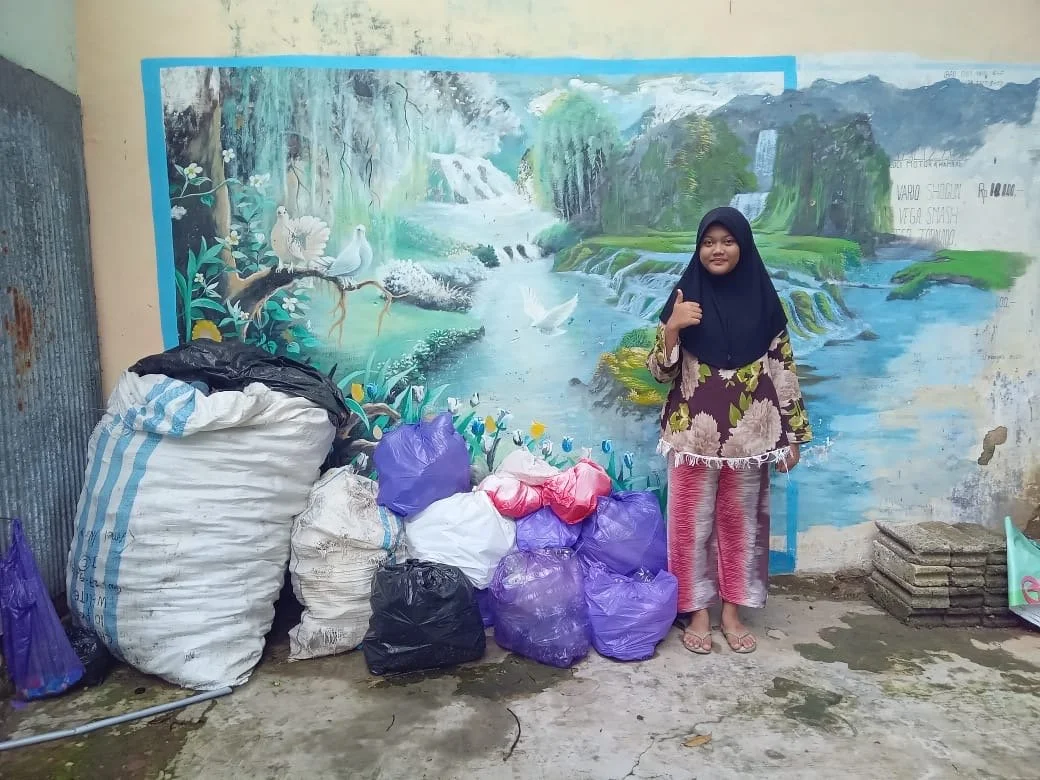Waste Transformers
The Challenge
Indonesia consists of 17,000 islands with a population of over 270 million and they are the second largest contributor to marine plastic pollution (MPP) in the world behind China.”It has been estimated that Indonesia generates 3.2 million tonnes of plastic waste that are unmanaged every year, of which 1.29 million ends up in the oceans and accounts for 16% of global MPP.” (Brill.com) However, not all plastic waste in their coastal waters is due to its own waste as surrounding countries’ waste (China, Philippines, Sri Lanka) also drift into these essential waterways.
Plastic pollution in these waterways and littering on land is a huge problem all across Indonesia. People also bury or burn their trash because there is a lack of infrastructure, especially in villages. The plastic makes its way through local swamps, rivers, and eventually to the ocean. “Indonesia has some of the most biodiverse and important coral reef systems in the world. But, over the past few decades, those habitats have faced a number of challenges, including plastic pollution” (chinadialogueocean.com).
MPP affects multiple resources and industries. “The overall financial damage of plastics that enter the marine environment is estimated to reach around US $13 billion each year, according to the UN Environment Assembly report. The greater the dependence of countries and local areas on coastal tourism or the fishing industry, the more vulnerable they are” (Brill.com). Despite government regulations in the past several years, the issues remain for lack of enforcement authority, product alternatives, customer support, and infrastructure to collect and properly dispose of waste.
Plastic waste is not the only waste that is the issue. Organic waste from rotten fruit, vegetables, and meat is widespread. “Inefficient processing, storage, transportation, as well as wastage at the consumer's level have led Indonesia to throw away around 23 to 48 million metric tons of food every year, an amount that is enough to address the country's malnourishment problem” (jakartaglobe.id).
A Solution
Waste Transformers is focused on creating efficient, sustainable, and reliable waste management solutions to protect Indonesia’s diverse ecosystem and communities. They collect different plastics, primarily with the 2 and 5 symbol, to upcycle into different products. Organic waste is processed through worm composting, turning food scraps and other biodegradable materials into nutrient-rich compost. Any remaining byproducts are further composted. They also aim to engage and partner with villages to manage their own waste by teaching them how to run their own materials recovery facility.
Business Activities Geared Towards Decent Work, Economic Development, Responsible Consumption, and Life Below Water.
Target: Promote full and productive employment and decent work for all women and men (adapted from 8.5)
Target: Work towards reducing waste generation through prevention, reduction, recycling and reuse (adapted from target 12.5)
Target: Work towards reducing water pollution of all kinds, in particular from land-based activities (from target 14.1)
Measured by:
Number of full-time, part-time, and/or temporary workers employed each quarter receiving a local living wage or higher.
Show how much money flowed to this area that would not have otherwise without the project for economic growth, list the quarterly expenses (including salaries but not your own).
Kilograms of organic waste diverted from landfills each quarter.
Amount of worm castings sold each quarter. (kg)
Describe efforts to grow the worm castings portion of the project?
Number of seminars held on waste education and sorting each quarter?
Number of individuals who attended seminars in waste sorting each quarter?
Kilograms of plastic recycled each quarter.
Waste Transformers is focused on creating efficient, sustainable, and reliable waste management solutions to protect Indonesia’s diverse ecosystem and communities. They collect different plastics, primarily with the 2 and 5 symbol, to upcycle into different products. Organic waste is processed through worm composting, turning food scraps and other biodegradable materials into nutrient-rich compost. Any remaining byproducts are further composted. They also aim to engage and partner with villages to manage their own waste by teaching them how to run their own materials recovery facility.
What Does Your Donation Go Towards?
$10 jumbo trash sorting/recycling bag
$20 provides PPE for 1 employee
$100 helps with waste processing infrastructure
$150/month provides salary for 1 employee
$500 buys an injection machine for plastic product creation

 Donate
Donate
